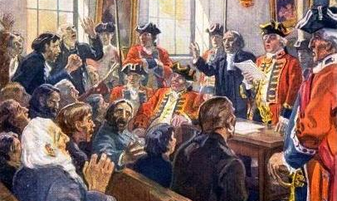As promised, here is the start of my historical examination of immigration rule changes, and we begin with the Chinese Exclusion Act of 1882. For those interested in the text of the act itself it can be found here.
For a little background, the first restriction on immigration to the US was actually the Page Act of 1875. This act too focused on Asian immigrants attempting to limit people being brought over for forced labor or prostitution. In practice that latter provision was a significant limiting factor on Chinese women coming to the United States, less because of most emigrating Chinese women actually being prostitutes than officials being overly skeptical towards claims of virtue. This association of the Chinese with crime was one of the major arguments used by anti-Chinese restrictionists in the years leading up to the exclusion act’s passage and parallels modern arguments about immigrant criminality. To explore this (and other major restrictionist arguments) the internet has made easily accessible wonderful resources such as arguments made before the California State Senate (the state with the highest Chinese population) by State Senator Creed Haymond. On page 4 he argues:
The State of California has a population variously estimated at from seven hundred thousand to eight hundred thousand, of which one hundred twenty-five thousand are Chinese…The evidence demonstrates beyond cavil that nearly the entire immigration comes from the lowest orders of the Chinese people, and mainly those having no homes or occupations on the land, but living on boats on the rivers, especially those in the vicinity of Canton.
This class of the people, according to the castes into which Chinese society is divided, are virtually pariahs—the dregs of the population. None of them are admitted into any of the privileges of the orders ranking above them. And while rudimentary education is encouraged, and even enforced among the masses of the people, the fishermen and those living on the waters and harbors of China are excluded by the rigid and hoary constitutions of caster from participation in such advantages.
It would seem to be a necessary consequence, flowing from this class of immigration, that a large proportion of criminals should be found among it; and this deduction is abundantly sustained by the facts before us, for of five hundred and forty-five of the foreign criminals in our State Prison, one hundred and ninety-eight are Chinese—nearly two-fifths of the whole—while our jails and reformatories swarm with the lower grade of malefactors.
(Emphasis mine).

